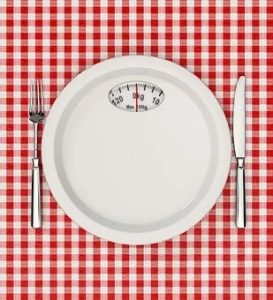Cutting back or entirely eliminating meals for reducing calories seems like the logical thing to do when you’re trying to lose weight. However, the opposite approach can charge your metabolism and encourage your body to let go of the fat it’s holding on to. The experts and the studies all point to eating more often instead of only eating once, twice, or the common three meals a day to program your body for losing weight.
3 Vs. 5
American society is conditioned to eat three squares a day: breakfast, lunch, and dinner. Just because that was the way you were brought up, though, doesn’t mean it’s the only or best way. In her book on lasting weight loss, Dr. Melina Jampolis points out that eating more frequently helps maintain muscle mass and keeps blood sugar and metabolism stable. Essentially, your body is like that paranoid, needy person you dated in college, constantly requiring reassurance. If you go for more than three or four hours without eating, your body will freak out and start conserving energy because it thinks you’re trying to starve it. Your resting metabolism will slow, and your cells will put a sleeper hold on fat stores. If you don’t eat every few hours, your body will do what it can to ensure it uses as little fuel as possible to hopefully live to see another day.
And as for the muscle mass piece of the puzzle, remember that your body will use muscle for energy when it goes into starvation mode. By eating more frequently, you’ll assure your body that it isn’t in danger of starving and it will leave your muscle tissue intact. Consequently, since maintaining lean muscle mass actually burns calories, your metabolism will increase.
Stay Mindful of Calories
When stress over reducing calories has you eating less than three meals a day, the thought of increasing the number of times you eat might make your head explode. The secret is to spread your calories out over the course of five meals instead of getting them all in one or two sittings. Eating smaller portions during actual sit-down meals and then supplementing with protein bars or shakes in between meals is the easiest way to accomplish that, especially if you work a typical 9 to 5 job. That method still allows for three meals a day, and you’ll easily be able to munch a protein bar or suck down a shake during breaks at work.

Drinking a protein shake 20 – 60 minutes before your workout can count as one of your 5 meals and will help burn calories.
As for fitting a workout into your eating schedule, or vice-versa, while you don’t want to exercise immediately after eating, you do need some fuel in your system. Otherwise, your body will slip into conservation mode. The ideal timing is to exercise 20 minutes to an hour after having a protein shake. Research shows that timing your workout after ingesting protein, specifically whey, elevates your resting metabolism up to 48 hours after your workout and can encourage fat burning.
Your Last Meal (…of the Day…)
So, if you’re eating five times a day, you might wonder how close to bedtime your last meal of the day should be. Most experts agree that it isn’t a good idea to eat and then immediately hit the sack, but they disagree on a specific amount of time between your last meal and bedtime. Some experts say that you should at least give it 2 hours after you eat before you go to bed, but that is mostly for digestion reasons rather than weight loss plans. One study performed in the Department of Exercise Sciences at BYU examined restricting night eating and focused more on avoiding eating between certain hours than on the amount of time between dinner and bedtime. It showed that when subjects effectively shut down the kitchen at 7 p.m. and didn’t eat again until 6 a.m., they reduced their caloric intake and experienced modest weight loss.

Going to bed neither full nor famished will help keep your body from holding onto excess weight — and you’ll sleep better, too.
If you’re trying to lose weight, take a cue from BYU. Decide on a time to place the kitchen off limits. Runner’s World advises posting a sign, if it helps, to remind yourself and support your evening eating cut off. What you eat for your last meal of the day matters, too. Go light on the fat, protein and carbs. That’s not to say you can’t have food that contains any of that, just limit the amounts. Your last meal should be the lightest of the day and designed to get you through the night to breakfast. After all, going to bed hungry red flags your body that it could starve. In the end, it’s all a balancing act. Put 2 to 4 hours between your last meal of the day and bedtime. That will ensure that you’re neither full nor famished when you hit the hay, and will provide the opportunity to burn a few more calories, whether it’s doing housework or walking the dog before you call it a night.



